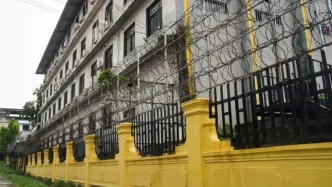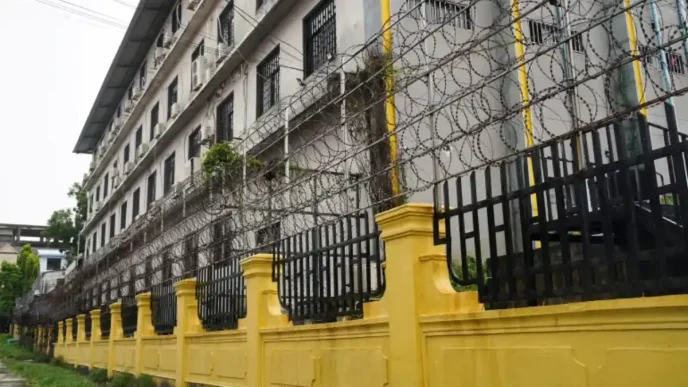In a case that has gripped North Sumatra and raised serious concerns about press freedom in Indonesia, prosecutors have filed an appeal against the sentences handed down to three men convicted of the premeditated murder of journalist Rico Sempuran Pasaribu and three members of his family. The brutal killings, which occurred in Karo regency on June 27, 2024, have sparked outrage and highlighted the dangers faced by journalists reporting on sensitive issues such as illegal gambling in the region.
Details of the Tragic Incident
The victims—Rico Sempuran Pasaribu, a journalist for Tribrata TV, his wife Eprida Ginting, their son Sudiinvestasi Pasaribu, and grandson Lowi Situngkir—perished in a fire deliberately set at their home. According to court findings, the attack was orchestrated by the three convicted men: Bebas Ginting, Yunus Saputra, and Rudi Apri Sembiring. The prosecution argued that the murders were premeditated, targeting Rico for his investigative reporting on illegal gambling activities in Karo regency, a region known for such underground operations.
On March 27, 2025, the Kabanjahe District Court delivered its verdict, sentencing Bebas Ginting and Yunus Saputra to life imprisonment, while Rudi Apri Sembiring received a 20-year jail term. Presiding Judge Adil Simarmata described the crime as “sadistic and inhumane,” noting that the perpetrators showed no remorse during the trial and that the killings, which included two minors among the victims, instilled fear in the local community. The court found no mitigating circumstances for Bebas and Yunus, while Rudi’s lighter sentence was attributed to it being his first offense.
Prosecutors Seek Harsher Penalties
Despite the severity of the sentences, prosecutors at the North Sumatra Prosecutors’ Office expressed dissatisfaction with the court’s decision. Adre Wanda Ginting, a spokesman for the office, confirmed that an appeal was lodged on April 15, 2025, just days after the verdict. Prosecutors had initially demanded the death penalty for all three defendants, citing the collective premeditated nature of the crime under Articles 340 and 55 of Indonesia’s Criminal Code.
“The panel of judges’ verdicts were not in line with the prosecutor’s demand, that’s why the prosecutor filed an appeal” said Adre in a statement to local media on April 17, 2025. The push for the death penalty reflects the gravity with which authorities view the crime, not only as a personal tragedy but as an assault on journalistic freedom and public safety.
Legal and Community Reactions
The legal team representing the victims’ family, led by Irvan Saputra of the Medan Legal Institute Aid (LBH), has voiced support for the prosecutors’ appeal. While acknowledging respect for the court’s ruling on the premeditated nature of the murders, Irvan questioned why the death penalty was not imposed given the consensus on the crime’s severity. “Both judges and prosecutors considered it a case of premeditated murder, but why not give the death sentence to the defendants?” he asked on April 17, 2025.
Irvan also called for a thorough investigation to ensure no other parties, including potential accomplices, are overlooked. Allegations of possible involvement by members of the Indonesian Military (TNI) have surfaced, with the case reportedly referred to the Bukit Barisan Military Command’s military police for further scrutiny. If confirmed, such involvement could elevate the case to a national scandal, raising questions about institutional accountability and the safety of journalists across Indonesia.
Press Freedom Under Threat
The murder of Rico Sempuran Pasaribu is not an isolated incident in a country where journalists often face significant risks for exposing corruption, crime, and other societal ills. Indonesia, while regarded as having a relatively free press compared to some of its Southeast Asian neighbors, still grapples with systemic challenges to media safety. According to data from international press freedom organizations, at least a dozen journalists have been killed in Indonesia over the past two decades, many in connection with their reporting on organized crime or political corruption.
Rico’s work with Tribrata TV placed him at odds with powerful local interests in Karo regency, where illegal gambling is reportedly rampant. His stories sought to uncover networks that operate with apparent impunity, often under the protection of influential figures. While no direct evidence has been presented in court linking the murders to specific gambling operators or their backers, the motive behind the attack appears tied to his journalistic endeavors—a chilling reminder of the personal costs of pursuing truth in volatile regions.
The broader implications of this case resonate beyond North Sumatra. Press freedom advocates have seized on the tragedy to call for stronger protections for journalists, including legislative reforms and dedicated task forces to investigate threats against media workers. The appeal process will likely draw further attention to these issues, potentially pressuring the Indonesian government to address systemic gaps in safeguarding the fourth estate.
Legal Context and Potential Outcomes
Under Indonesian law, premeditated murder carries severe penalties, including the possibility of capital punishment. However, the death penalty is rarely applied, often reserved for cases involving terrorism or large-scale drug trafficking. The decision by the Kabanjahe District Court to opt for life imprisonment and a reduced sentence for one defendant may reflect judicial caution in applying the ultimate penalty, even in a case as heinous as this.
The appeal, now headed to a higher court, could result in several outcomes. If successful, prosecutors may see the sentences revised to include the death penalty for all three men. Alternatively, the higher court could uphold the original verdict or even reduce the penalties further, though the latter seems unlikely given public sentiment and the prosecution’s firm stance. Legal experts suggest that the case’s high profile, combined with allegations of military involvement, may influence the appellate court’s deliberations, potentially leading to a more comprehensive investigation.
Community Impact and Fear
In Karo regency, the murders have left an indelible mark on the community. The deliberate nature of the attack—setting a family home ablaze with no regard for the lives inside—has created a palpable sense of fear among residents. Local journalists, in particular, report feeling vulnerable, with some opting to scale back on investigative work for fear of reprisal. Community leaders have called for increased police presence and protection for those who speak out against crime, though trust in local authorities remains shaky given the nature of Rico’s reporting.
The loss of two children in the attack has further compounded the tragedy, with vigils and memorials held in the months following the incident. These gatherings have served as both a space for mourning and a platform for demanding justice, with many attendees expressing frustration over the perceived leniency of the sentences. The appeal process offers a glimmer of hope for those seeking closure, though it also prolongs the legal ordeal for the surviving family members.
Looking Ahead
As the appeal moves forward, the case of Rico Sempuran Pasaribu and his family stands as a stark symbol of the risks journalists face in Indonesia and the broader struggle for accountability in a complex socio-political landscape. The outcome of the legal battle may set a precedent for how similar cases are handled in the future, potentially shaping policies on press protection and the prosecution of crimes against media workers.
For now, questions linger over whether justice will be fully served—not only for the victims but for a society grappling with the chilling effect of such violence. As the higher court prepares to hear the appeal, the eyes of North Sumatra, and indeed the nation, remain fixed on Karo regency, hoping for answers and a safer future for those who dare to report the truth.














